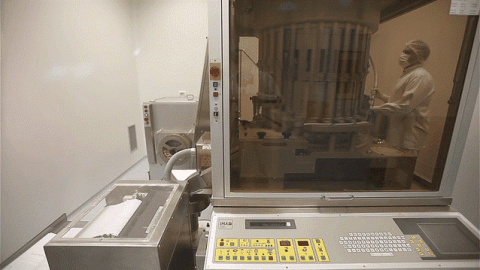
The factory of Vesta Pharmaceutical Development Joint Stock Company meets GMP standard granted by Food Safety Department - Ministry of Health in early 2019
Good Manufacturing Practice (GMP) is a manufacturing practice standard, including general principles, regulations, guidelines for basic content of production conditions; Applicable to establishments producing, processing, packaging food, pharmaceutical products, medical equipment, cosmetics, etc, to ensure the product’s quality and safety.
GMP is a fundamental part of the food safety management system, the basis for developing HACCP systems and ISO 22000 food safety management standards.
Applying the GMP standards also prevents the risk of misbranding, contamination or mixing of manufactured goods.
In the United States, GMP is enforced by the US FDA through the Current Good Manufacturing Practices (CGMP) provisions and covers a wide range of industries such as cosmetics, food, medical devices and prescription drugs. FDA conducts facility inspection in the US to ensure CGMP compliance. Serious violations can often result in product recall as required by the FDA.
In Europe, GMP-EU certification confirms that pharmaceuticals are manufactured from factories quanlity European standards.
In Vietnam, since 1997, the General Department of Standardization, Metrology and Quality has issued a Decision guiding general guidelines on basic contents of GMP applied in food production establishments. Since July 1, 2008, the Ministry of Health has also decided that all manufacturing establishments of western medicines permitted to produce must meet GMP-WHO principles and standards. Currently, the Ministry of Health has circulated a Guideline on Good Manufacturing Practices (GMP) in manufacturing and trading health food (the latest version was issued in July this year, 2019).
In 2010, Vietnam had 4 pharmaceutical factories meeting GMPs standards. By January 2019, 222 companies had met the GMP-WHO principle standard.
Benefits of GMP
GMP is not only required in Vietnam but also has many GMP levels to bring different benefits to pharmaceutical companies:
In addition, the trend of manufacturing management in the coming time of pharmaceutical enterprises is to further promote the digitization in pharmaceutical production and distribution management, in particular, the application of ERP solutions to the pharmaceutical industry. Enterprises control the situation and provide timely and sufficient information to control the situation when making business and production management decisions.
10 basic principles of GMP
Rule 1: Design the factory right from the start
Rule 2: Evaluation process
Rule 3: Write down the procedures and follow the written procedure:
Rule 4: Determine who does what?
Rule 5: Good record keeping
Rule 6: Training and developing employees
Rule 7: Practicing good hygiene
Rule 8: Maintenance of workshops and equipment
Rule 9: Quality design based on the entire product lifecycle
Rule 10: Regular inspection
Productivity and Quality Office